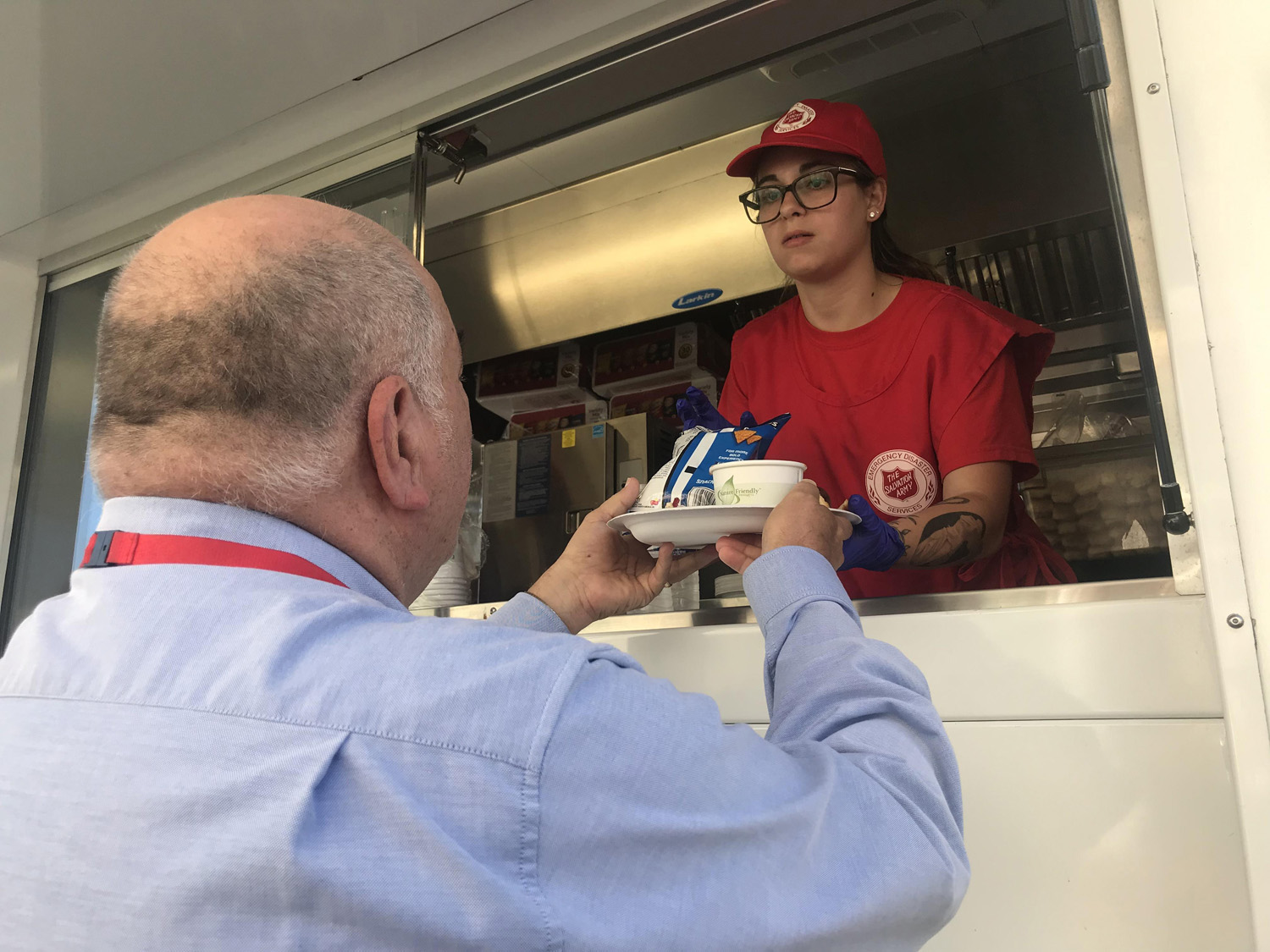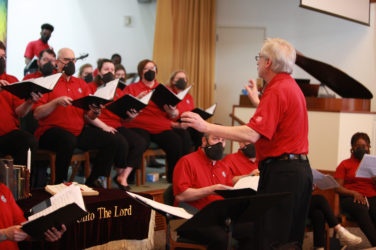by Alexis Twito
Central Territory emergency disaster services (EDS) had a valuable and successful time conducting its training and operations this summer at the Patriot North Disaster Training Exercise held at the Volk Field Air National Guard and Fort McCoy U.S. Army installations in Wisconsin.
The annual training exercise brings together military, government agencies and civilian organizations to increase their understanding of the coordination, policies and procedures required for conducting a joint, inter-agency domestic disaster response. The Salvation Army initially was invited six years ago to help alleviate the problem of keeping participants hydrated. Since then EDS has expanded the scope of its operations and increased the number of personnel.
This year more than 75 Central Territory EDS men and women, representing all divisions, participated.
“The value here is that we’re building relationships, providing real-life support and improving our deployment processes and skills. It gives us an opportunity to see where our gaps might be, then address those gaps in practice exercises,” said Terri Leece, Wisconsin and Upper Michigan divisional emergency disaster services director.
One such gap was emergency sheltering. “Although EDS is listed as a backup resource in disasters for emergency sheltering, it’s not something we’ve provided at the exercise before,” Terri continued. After EDS held emergency sheltering training, a team of volunteers practiced how to set up, staff and tear down an emergency shelter.
This year two complete Incident Management Teams operated with a shadow team, which is vital in mentoring trained people to fill key disaster leadership roles. SATERN (Salvation Army Team Radio Network) members not only provided radio communications support to EDS operations, they also assisted Team Rubicon, a veterans’ disaster radio organization which participates in the exercise every year. SATERN also shared equipment with other organizations when the need arose in one of the disaster scenarios.
Between the two exercise sites, EDS canteens provided 1,800 meals and snacks to participants over three days. The 2,000 bottles of water and 300 bags of ice they distributed on the field were appreciated as temperatures rose past 90 degrees.
In addition to feeding and hydration, emotional and spiritual care teams interacted with military and civilian participants alike with smiles, friendly conversations and spiritual support. Two dogs and their handlers from HOPE Animal-Assisted Crisis Response worked with the teams, which made 700 emotional and spiritual care contacts.





